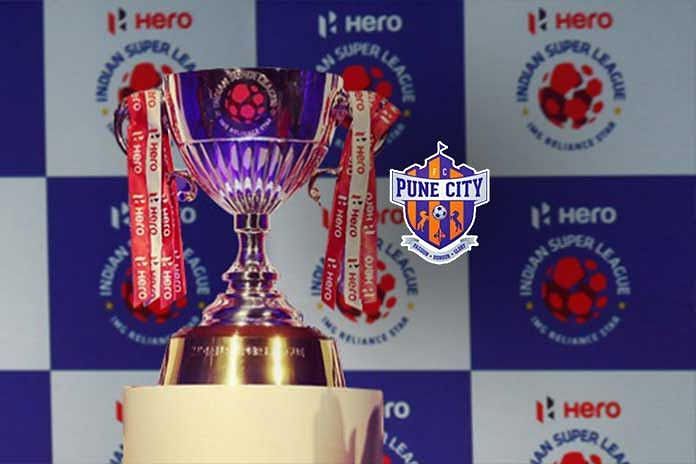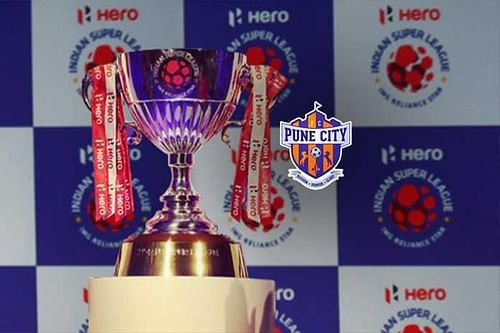
FC Pune City on brink of liquidation and the conundrum of a unified league structure

Rumours have been flying around that FC Pune City will cease operations after five eventful years in the Indian Super League. If reports are to be believed, the owners - Rajesh Wadhawan group is facing financial troubles and the club is on the verge of a spectacular collapse or disbandment.
According to news agency Times of India, the club is looking for a bailout after accumulating losses amounting to Rs.150 crores since its inception in 2014. The Times of India report also mentions that Pune City representatives are currently in the process of sounding out well-known businessmen in the city to act as investors in an effort to keep the club afloat.
“Like many other clubs in ISL, we are also looking at strategic investors and this has been on for the last few years. At present, we don’t have any offers, so we can’t say whether the club will remain in Pune or not. We hope the club will (stay),” the paper has quoted a club official as saying.
All in all, it is a bit of a mess and this summer will be one that leaves some talented players looking for new pastures should the club be dissolved. However, it is imperative that the Football Sports Development Limited (FSDL), the holding company of the Indian Super League and AIFF president, Praful Patel intervenes to prevent FC Pune City from going out of business.
Ashok Piramal group, Kalyani group, DSK Shivajians and Venky’s - have all been associated with football and have deep roots in the city. They could form a consortium and share the burden of running the club. Ultimately, they could hold the key to saving FC Pune City from disappearing into football’s financial abyss.
As known, FC Pune City isn't the first club to head towards dissolution. In the past, clubs like Pune FC, Mahindra United, JCT, Dempo SC, Salgaocar FC, and others have closed down operations. If more clubs close down, there will be repercussions. Indian football will suffer in the long run as just nine or eleven elite clubs will not provide adequate opportunity for Indian players and coaches.
Reigning champions Minerva Punjab owner Ranjit Bajaj believes for Indian football to prosper the top tier of Indian football, be it I-League or the ISL, should have a promotion and relegation system.
“There should be one league with merit-based promotion and relegation and, as long as that happens, we don’t care in which league we play. If we are good enough, we will reach the top and if we are not good enough we should be relegated. There should be no relegation immunity for anyone,” said Ranjit Bajaj to Hindustan Times.
Former India skipper Baichung Bhutia echoed similar sentiments. “Unless I offer the possibility of being part of the top tier, why will investors want to be part of my club United Sikkim?”
Bajaj and Bhutia have made valid arguments. A merit-based promotion/relegation between the two leagues could make Indian football more interesting for fans, and with the potential for new investment at the lower levels, it might help take the game to the next level in this country. FC Basel’s investment in I-League club Chennai City is a good case in point.
Moreover, introducing a system of promotion and relegation could act as a powerful incentive for smaller clubs to mushroom in small towns and cities.
More clubs means more players get the opportunity to play at the highest level and the base of talent increases. A more open market would help improve the standards and act as a feeder to the ISL clubs.
Meanwhile, Football Sports Development Limited (FSDL) wants to progressively and strategically increase the size of the Indian Super League over the next few seasons. They are contractually obligated to protect the value of the existing licenses in which the current owners have invested. By introducing the possibility of relegation from the Indian Super League, FSDL would be violating those very terms.
It is difficult to see how FSDL and AIFF ( All India Football Federation) can protect the value of an ISL license by introducing a system of promotion and relegation.
In the coming months, AIFF will have to deal with a powerful lobby of Indian Super League franchises and an ambitious collective of I-League clubs. Reform of the existing league structure will continue to be pushed by the I-League clubs.
The challenge for FSDL and AIFF will be to devise a new structure without compromising the marketability or integrity of the Indian Super League.